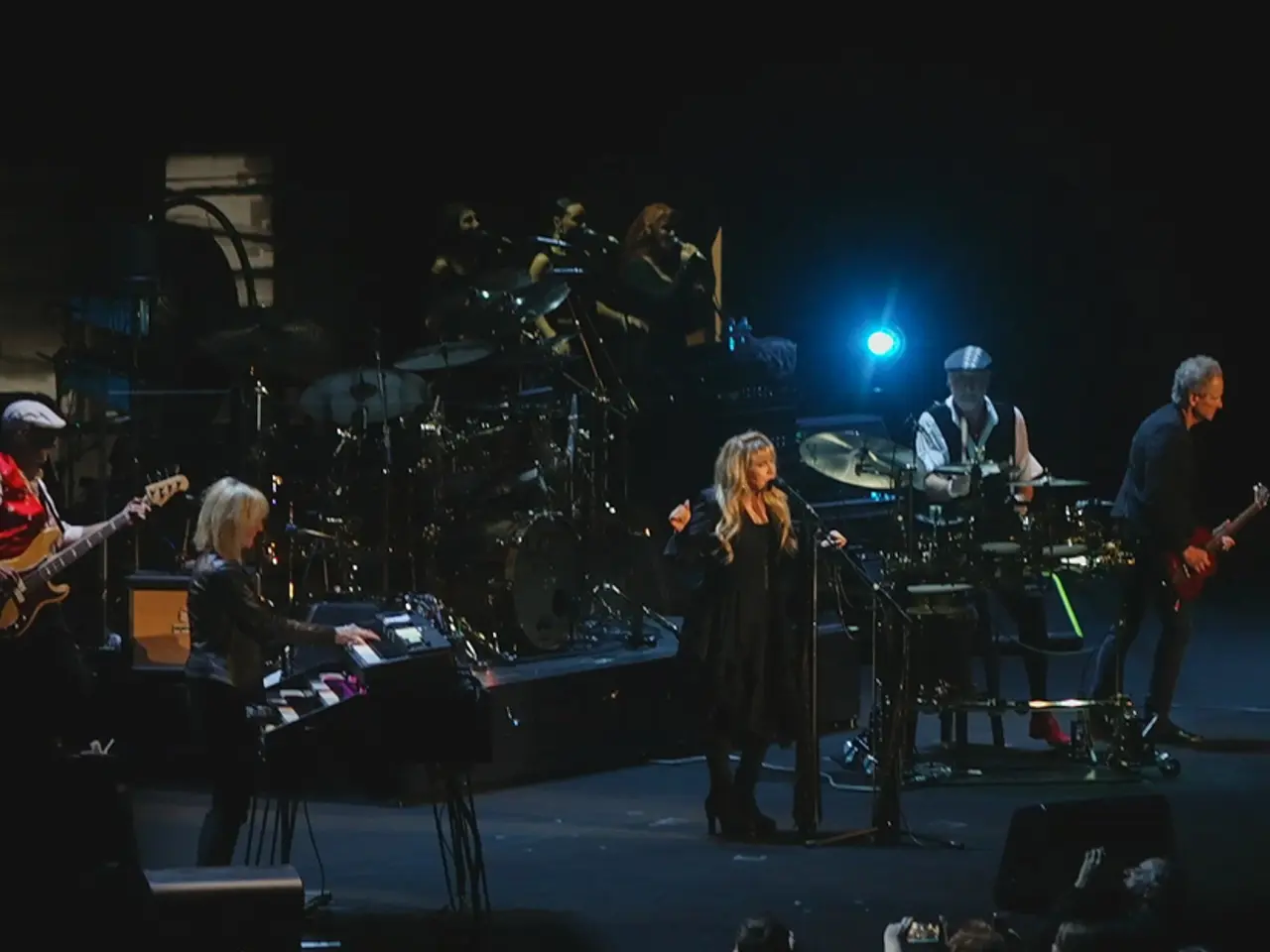Professor Shana L. Redmond Discussed on NPR's Morning Edition - American Anthem Examination
In a recent segment of NPR's American Anthem: Music that Challenges, Unites and Celebrates, the focus turned to a powerful piece of African American history—the song "Lift Every Voice and Sing."
Composed in 1900 by James Weldon Johnson and his brother John Rosamond Johnson, the song was first performed by 500 schoolchildren at a celebration of Abraham Lincoln’s birthday. Since then, it has become more than just a song; it is a symbol of hope, resilience, and unity for black communities worldwide.
The segment features Shana L. Redmond, a professor of musicology, who offers a deeper understanding of the song's role in black communities. According to Redmond, the song's lyrics, which draw inspiration from the Exodus story of liberation, symbolise the ongoing struggle for freedom and justice.
Redmond suggests that the future revealed in the lyrics of "Lift Every Voice and Sing" is hopeful. The song's message of perseverance and unity resonates strongly, especially in the face of the unique and unsettling vulnerabilities faced by black communities.
The segment encourages listeners to reflect on the song's relevance and impact in contemporary society. With its powerful message, "Lift Every Voice and Sing" continues to challenge, unite, and celebrate, as demonstrated in the segment.
The segment is part of NPR's American Anthem series and can be listened to on their platform. For those interested in learning more about the song's historical significance, the segment provides additional insights.
"Lift Every Voice and Sing" is a song about overcoming difficulties, a healing balm with a deep Christian theological message affirming hope and the flourishing of humanity. It embodies the spiritual and historical journey of African Americans, uniting biblical motifs with a call for perseverance and justice, making it a profound cultural and political anthem within the Black American community.
Since the renewed focus on racial justice following the killing of George Floyd in 2020, the song has seen a resurgence in popularity at national events. Its staying power is a testament to its enduring message and the hope it brings to many.
[1] James Weldon Johnson, "Lift Every Voice and Sing," Poetry Foundation, https://www.poetryfoundation.org/poems/45118/lift-every-voice-and-sing
[2] NPR, "Lift Every Voice And Sing: The Black National Anthem That Endures," https://www.npr.org/2020/06/19/879771675/lift-every-voice-and-sing-the-black-national-anthem-that-endures
[3] The History of "Lift Every Voice and Sing," National Museum of African American Music, https://www.nmaam.org/stories/the-history-of-lift-every-voice-and-sing
[4] Shana L. Redmond, "Lift Every Voice and Sing: The Black National Anthem," Morning Edition, NPR, https://www.npr.org/2020/06/19/879771675/lift-every-voice-and-sing-the-black-national-anthem-that-endures
[5] "Lift Every Voice and Sing: Black National Anthem," African American History Month, https://www.africanamericanhistorymonth.gov/articles/lift-every-voice-and-sing-black-national-anthem
Read also:
- Emotional response to the demise of celebrities, despite lack of personal connection
- Events occurring overseas don't remain confined to their locations
- Public Broadcasting Corporation set to discontinue operations following funding withdrawal by Congress, under attack by Trump
- Twelve Remarkable Books to Enhance Your Intellect




